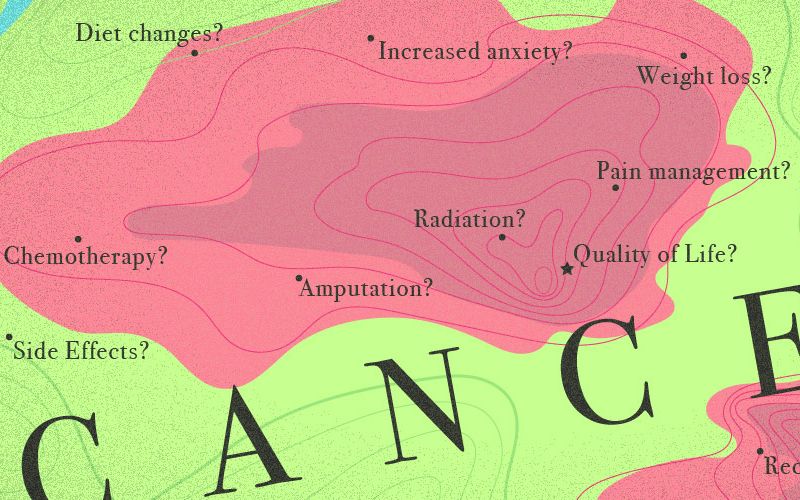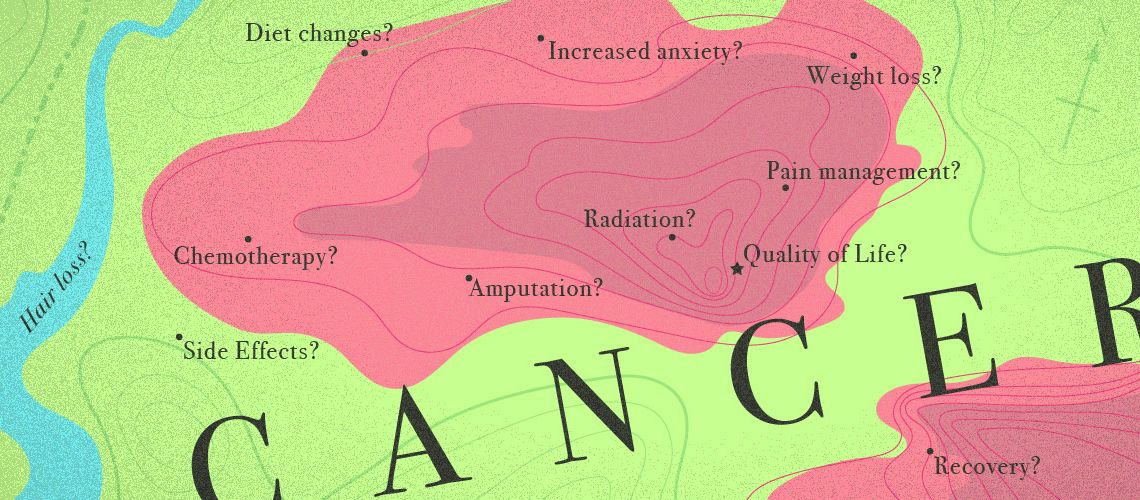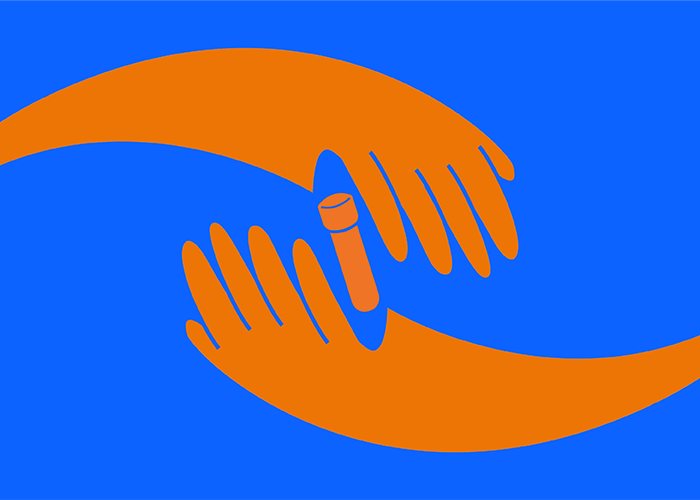

How to Talk to Pet Owners About Cancer Including Top Questions to Answer
Breaking the news of a cancer diagnosis with a client is never easy. You have to cover a lot of information, help the client make decisions, refer them to a specialist, and deal with the inevitable negative emotions and preconceived notions that can cloud your client's ability to make logical decisions.
Fortunately, when it comes to talking to pet owners about treatment, there's data to support you. And, if you can help a client understand how much their pet will benefit from cancer care and manage their expectations ahead of time, everything can go more smoothly.
This article will provide peer-reviewed research you can use when talking to clients, the most common client questions and concerns, and referral best practices.
Essential Elements of Conversations About Cancer
The primary considerations a general practitioner needs to think about when a patient has a new cancer diagnosis include:
- Managing the client's expectations and using data to support your recommendations as necessary.
- Endeavoring to understand the values and limitations of the pet owner before referral. The general practitioner has the trust of the client and knowledge about their life situation that should be taken into consideration before starting treatment.
- Ensuring that owners understand the most likely outcomes of different options.
- Anticipating side effects, informing the client, and starting medications early.
- Letting the client know it's important to continue managing comorbidities during neoplasia treatment.
- Maintaining regular preventive care.
- Reminding owners of the generally positive outcomes of chemotherapy.

Common Client Concerns
Having answers to common questions or concerns your clients might have after their pet is diagnosed with cancer will give you a leg up—and having studies to reference can help reassure your clients.
Will my dog's quality of life be worse with cancer treatment?
A recent study measured the efficacy of a questionnaire as a new tool for assessing quality of life (QOL) in dogs undergoing chemotherapy. Known as Canine Owner-Reported Quality of Life (CORQ), pet owners answered survey questions on the vitality, companionship, pain, and mobility of their dogs. The study found that the questionnaire was a suitable tool for measuring QOL, and in the process of doing so, found that most of the dogs whose owners participated still maintained 80%-90% of their quality of life while undergoing therapy.
I'm concerned about the side effects of chemotherapy.
A recent study showed that while pet owners expect many negative side effects, their actual experience with chemotherapy did not correlate with their expectations.
Remember that most pet owners will carry a cognitive bias that their pet's quality of life will be terrible during chemo, so it's important to reassure them that side effects are generally minimal. And if they do occur, they are generally easily managed.
Most people will have questions about hair loss. In one study, about 20% of dogs experienced hair loss during chemotherapy and dogs with curly or wire-haired coat-type were more likely to experience it.
In general, the main quality of life considerations to address during chemo include:
- Weight management. Muscle loss and weight loss are common.
- Pain management.
- Behavioral management. Don't be afraid to use drugs to manage anxiety during treatment or post-op. Trazodone is a good choice for many patients because it doesn't cause hypotension, provides sedation, and manages anxiety centrally.
Most owners want to see perceived improvement in the form of a good appetite, good energy level, interest in interaction, and lack of interpreted pain.
I'm concerned about negative side effects in my cat.
Appetite loss, vomiting, and diarrhea are some of the main concerns for cat owners. Reassure your client there are excellent drugs available to mitigate the toxicity of chemotherapeutic drugs. Whiskers are likely to fall out or break during chemo, but cats can navigate normally without whiskers until they grow back.
What should I feed my pet who has cancer?
It's common for pet owners to change their pet's diet after a cancer diagnosis. In an uncontrollable situation, clients will focus on what they can control—food. Let them know ahead of time that missing a meal is not a crisis, and they should not change their pet's diet during chemotherapy without consulting you.
It's best to recommend a conventional diet, typically one that is palatable and high calorie, and to advise clients to avoid raw diets because of immunosuppression. In general, clients want the veterinarian to make a food recommendation, even if it is "keep feeding your cat a maintenance food."
I'm concerned amputation will decrease my pet's quality of life.
The decision to amputate is difficult, however after it's done, most pet owners are happy they went through with the procedure. The pet is usually not using the limb, so there won't usually be a big alteration to pet's behavior after amputation when surgical effects subside.
A 2016 study showed that most dogs recovered quickly from hind limb amputation, adapting to their new normal within 10 days. Remind clients that dogs will be more comfortable because they are no longer in pain.
The data is similar in cats with a study reporting almost 100% of cat owners who elected amputation therapy had an excellent or good experience.
I'm concerned about the side effects of radiation.
According to a 2019 study, when it comes to radiation, the main concern pet owners have is anesthesia. Let pet owners know that the level of anesthesia required for radiation is much lower than what is needed for surgery.
Pets that can't eat or drink during multiple doses of radiation will likely lose some weight. In these situations, advise the client to expect 10% weight loss. The weight tends to come back quickly after therapy has ceased, and they should not change the pet's diet.
Referral Best Practices
When you're referring a client, it's not only important to prepare them, but it's also crucial to do your part in facilitating a smooth transfer:
- Send all records—you may even have a lab sharing function in your patient portal
- Keep your contact information current
- Learn to use your specialist's hospital portal
- Stay involved with the pet's routine healthcare
- Ask for help from the specialist before extensive/expensive testing
- Share insights about the client with the specialist regarding their specific situations
- Refer to the AAHA referral and consultation guidelines for more tips
When it comes to talking to pet owners whose pets were recently diagnosed with cancer, have these studies on hand to help support their search for answers.







